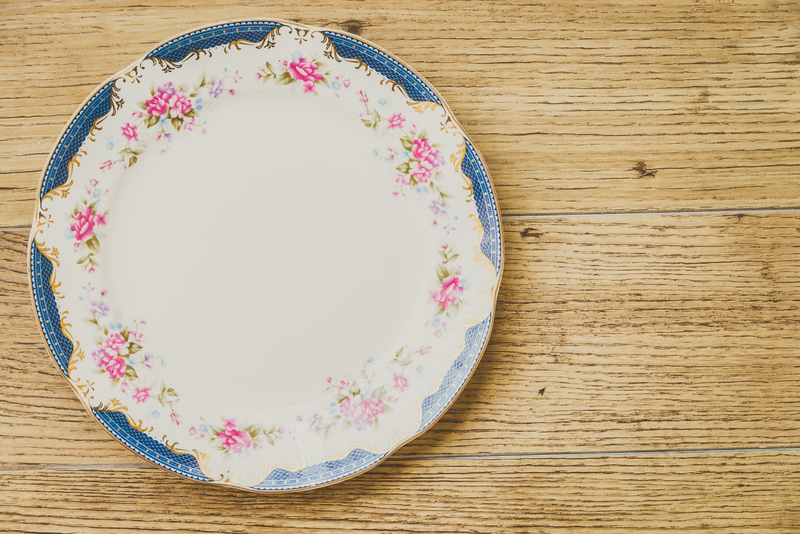Finding Local Scrap Yards That Accept Pots and Pans: A Comprehensive Guide
Are you wondering what to do with those old, unused, or damaged pots and pans? Instead of tossing them in the trash, finding local scrap yards that accept cookware items such as pots and pans is a sustainable and potentially profitable solution. This comprehensive guide will walk you through everything you need to know about scrapping kitchenware and locating a nearby scrap metal yard that takes your old cookware.
Why Recycle Pots and Pans at Scrap Yards?
Every year, households across the world throw away thousands of tons of metal cookware. Pots and pans, whether damaged, outdated, or simply replaced, often end up in landfills--leading to environmental harm and lost opportunities for recycling valuable materials.
- Reduce landfill waste: Cooking pots and pans are predominantly made of metals like aluminum, stainless steel, and copper--all of which are recyclable materials, reducing landfill use.
- Conserve resources: Recycling metals from your kitchenware reduces the need to extract virgin materials, conserving natural resources.
- Earn some cash: Many local scrap metal yards pay for scrap metal including your old pots, pans, and other kitchen accessories.
- Support the circular economy: Recycling cookware keeps valuable materials in use, promoting sustainability.

What Types of Pots and Pans Can Be Scrapped?
Before heading to a scrap yard near you that accepts cookware, it's important to know which items can actually be recycled. Not all pots and pans are eligible; some scrap yards have specific rules about what materials they accept.
Most Common Types of Scrap Cookware:
- Aluminum cookware: Lightweight and silver-colored, often non-magnetic. Aluminum pots and pans are one of the most common kitchen scrap metals accepted by scrap yards.
- Stainless steel pots: Heavier and rust-resistant, stainless steel is widely used in both cookware and is often accepted.
- Copper-bottomed pans: Popular in high-quality or vintage cookware.
- Cast iron pans: Especially if cracked, rusted, or beyond repair.
- Enamelware: Some yards take enamel-coated pots, as the core is usually iron or steel.
Tip: Always remove any non-metal parts, such as plastic handles or glass lids, before dropping your cookware at a scrap yard. These materials can contaminate metal recycling streams.
Understanding Scrap Yard Requirements for Pots and Pans
Each local scrap yard might have different requirements and procedures for accepting pots and pans. Knowing these details beforehand will ensure your scrapping process goes smoothly.
Key Things to Consider:
- Accepted Materials: Some scrap metal yards only accept certain metals (e.g., only aluminum or steel). Call ahead or check their website for a list of accepted items.
- Preparation: Many locations prefer cookware to be clean and free from excessive food debris or grease, as contamination can reduce the item's scrap value.
- Separation: If you're bringing a large haul, separating metals (aluminum, steel, copper) can help you get the best price and speed up transaction times.
- Proof of ownership: Some scrap yards require identification due to regulations to combat metal theft.
Remember: If your pots or pans have a non-stick coating, some yards may not accept them due to chemicals in the coating, so always verify first.
How to Find Local Scrap Yards That Accept Pots and Pans
Locating a local scrap yard that takes pots and pans is easier than you might think, thanks to online resources and communities. Follow these steps to find the right scrap yard near you:
1. Use Online Directories and Apps
- Earth911: Visit Earth911 and use their recycling locator tool. Enter your zip code and search for "scrap metal" or "pots and pans" recycling options.
- ScrapMonster: Another online directory where you can filter scrap dealers by materials accepted and location.
- Google Maps: Type in relevant queries such as "scrap yard near me accepting cookware," "scrap metal near me", or "pot and pan recycling".
- Yelp: Check for user reviews and information about local scrap yards that take household metal items.
2. Ask the Scrap Yard Directly
Once you find a potential scrap yard, call them or check their website FAQ. Ask specifically if they accept "old pots and pans for scrap" and whether you need to remove any attached non-metal parts or coatings.
3. Local Municipal Recycling Programs
- Many cities run recycling programs or periodic metal collection events. Check your municipality's solid waste services to see if they suggest nearby locations or conduct seasonal scrap metal pickups.
4. Community Resources & Social Media
- Local Facebook groups, Nextdoor, and neighborhood forums are excellent sources for finding recommendations or small-scale recyclers who may accept cookware.
- Freecycle and Buy Nothing groups: Even if an item is not reusable for culinary tasks, metal artists or hobbyists often look for old kitchenware for upcycling projects.
Typical Process When Bringing Pots and Pans to a Scrap Yard
Understanding what will happen when you arrive at a local scrap metal facility accepting pots and pans can prevent confusion and ensure a smooth experience.
- Preparation: Clean your pots, remove any non-metal attachments, and sort by material type if possible.
- Arrival: Head to the scrap yard, go to their receiving area, and inform staff you're delivering old cookware for recycling.
- Weigh-in: Your items are weighed (sometimes sorted into bins for aluminum, copper, or steel). You may receive a receipt showing total weight and type of metal.
- Payout: Most scrap yards pay for metals by weight (lb or kg). Rates differ by material and market demand.
- Documentation: You may be asked for ID, and to sign a receipt or log, to comply with regulations.
Tips to Maximize Your Scrap Value
Getting the most out of your trip to the scrap yard isn't just about dumping everything together. Here are professional tips to ensure you receive the highest scrap value for your old pots and pans:
- Separate your metals: Aluminum pans, stainless steel pots, and copper-bottoms are usually paid at different rates. Separation makes weighing and paying easier and can maximize your payout.
- Remove non-metal parts: Plastic handles, lids, or rubber grips can lower the price or cause rejection.
- Clean your items: Excessive grime or burnt-on food can count as "contamination," reducing the scrap price.
- Check current scrap prices: Metal rates fluctuate daily--look up current prices or call your local yard for accurate information.
What Happens to Pots and Pans After Scrapping?
Once you drop off your unwanted pots and pans at a nearby scrap yard that accepts cookware, the recycling process truly begins.
Recycling Process Overview
- Sorting: Cookware is sorted by metal type (aluminum, steel, copper, etc.).
- Cleaning/Shredding: Any remaining contaminants or coatings are removed mechanically.
- Melting: Metals are melted down in large foundries and purified, if necessary.
- Re-Use: The purified metal is fashioned into new products--often including new kitchenware, building materials, or vehicle components.
Fun Fact: Aluminum recycled from a single old frying pan could end up as part of an airplane, soda can, or electronics case!
Alternative Options If Scrap Yards Don't Accept Your Cookware
Not every local recycling facility will handle all types of cookware, especially if they have coatings or are made of mixed materials. If you run into problems scrapping your old pots and pans, consider these alternatives:
- Donation: If in usable condition, donate to local charities, thrift stores, or shelters.
- Upcycling: Broken pots can become plant containers, crafty lamp fixtures, or storage bins.
- Specialty Recyclers: Some companies specialize in taking coated or "complex" kitchen goods for recycling--search online for options in your region.
- Curbside Bulk Pickup: Certain municipal programs occasionally offer bulk metal pickup days that include pots and pans.

Frequently Asked Questions About Scrapping Pots and Pans
Is there a difference in price between aluminum and stainless steel pans?
Yes! Aluminum pans generally fetch a higher price per pound compared to most stainless steel or steel cookware. However, prices fluctuate weekly and depend on regional demand.
Do I get paid for non-stick pans?
Most scrap yards that accept pots and pans will not pay for non-stick or Teflon-coated cookware due to contamination risk. Always ask first; sometimes, the yard may accept them but at a lower rate.
Can I scrap cookware with plastic handles or glass lids?
You should remove non-metal parts before scrapping. If not possible, ask the scrap yard if they'll accept it "as-is"--some yards may deduct weight or reject mixed-material items altogether.
What's the best way to identify what kind of metal a pan is made from?
- Check for stamps or labels--"aluminum," "stainless," or "copper."
- Use a magnet: Stainless steel may be slightly magnetic, aluminum is not. Pure copper is reddish and not magnetic.
- If unsure, ask your scrap yard--they can usually identify the metal type on-site.
Conclusion: Make the Most of Your Old Pots and Pans
Finding local scrap yards that accept pots and pans is a responsible, environmentally friendly way to discard your unwanted kitchenware. By researching nearby facilities, preparing your items properly, and understanding what's accepted and how scrap value works, you can help the planet while possibly making some extra cash. Remember, recycling cookware helps decrease landfill waste and keeps valuable metals in circulation--so the next time you upgrade your kitchen, give your old pots and pans a valuable second life!
Ready to get started? Start searching for "scrap yards near me that take cookware", gather those unused or broken pots and pans, and make your next trip to the scrap yard a rewarding experience!
